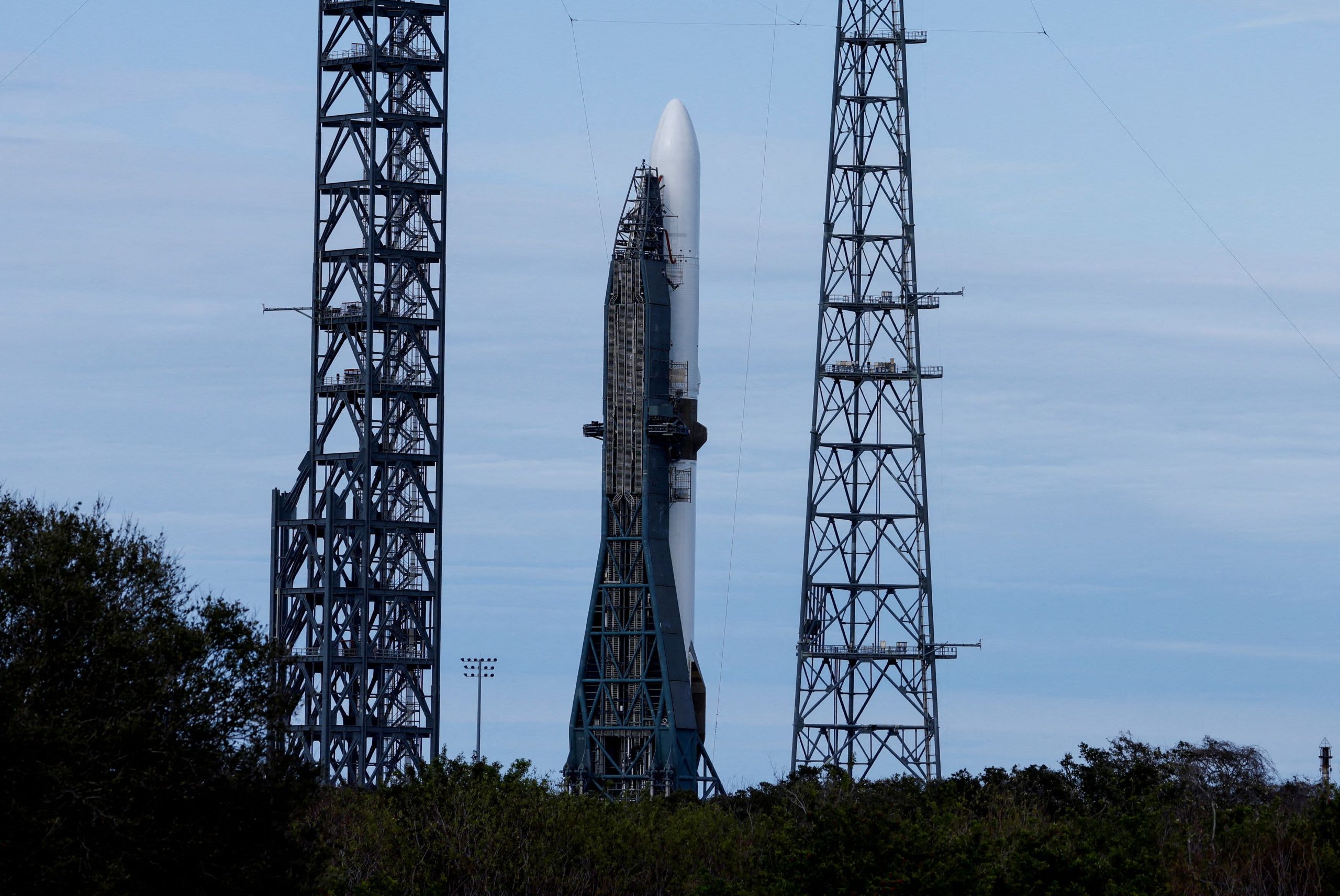Jeff Bezos’ Blue Origin on Monday called off the inaugural launch of its New Glenn rocket following last-minute issues on the vehicle, in a blow to its bid to compete with Elon Musk’s SpaceX in the satellite space.
The launch was slated to take place out of Cape Canaveral in Florida as of 1 a.m. ET.
“We are standing down today’s launch attempt to troubleshoot a vehicle sub-system issue that will take us beyond our launch window,” said Ariane Cornell, Blue Origin vice president of in-space systems, during a livestream of the intended take-off.
She added that Blue Origin was reviewing opportunities for the next launch attempt. During its Monday mission, the rocket was ambitiously poised to land a first-stage booster on the ship Jacklyn offshore in the Atlantic Ocean for future reuse, with the rocket’s second stage continuing into orbit.
For its test flight — a prerequisite often requiring repeats before rockets can be entrusted with national security payloads — the New Glenn was intended to carry the company’s Blue Ring spacecraft that can maneuver to multiple orbits and locations, along with hosting and deploying payloads.
“The launch team is now working to de-tank and safe the vehicle. From there, we’re going to assess what other things we want to get done on our downtime, and that is what’s going to guide when the next launch opportunity will be,” Cornell noted on Monday.
Standing at 320 feet tall, the partially reusable New Glenn rocket faced multiple delays to its liftoff time before the final decision to call off its launch. The mission’s initial take-off was repeatedly postponed to Monday because of unfavorable conditions at sea for booster landing.
Delays, technical difficulties and failures are not uncommon in inaugural rocket missions. The Blue Origin project has been notable for its emphasis on sustainability.
“As part of the long-term vision, we really need to protect this planet. And the role of space technologies,” Cornell said. “That’s also why we started with reusable rockets and reusable engines.”
The road to Blue Origin’s first wholescale foray into orbit has spanned three CEO appointments since the company’s establishment in 2000 and several sub-orbital launches carrying space tourists on the company’s $2.5 billion New Shepard. Blue Origin’s methane-burning BE-4 engines — present in the New Glenn — were also used in United Launch Alliance’s Vulcan rocket, which reached orbit twice last year.
Tech billionaires have increasingly sought to venture into space exploration — the traditional prestigious remit of government programs — which offers commercial opportunities in both satellite launches and space tourism.
Musk’s SpaceX has dominated the realm in recent years, boasting 433 total launches as of Jan. 13 and targeting the launch of a Falcon 9 rocket carrying 21 Starlink satellites into low-Earth orbit on Monday. Richard Branson’s Virgin Galactic
International: Top News And Analysis
Read the full article <a href="Read More” target=”_blank”>here.


